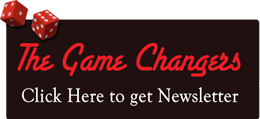Words Matter Most: In Today’s Difficult Economy, What You Say Is What You Sell
By Denis Jakuc
Writer/Brand Strategist
The expression used to be, “the more you tell, the more you sell.” Now that many marketing appeals come via smaller-sized channels like emails, web windows and tweets, the quantity of your story is often limited by its format. Yet in today’s super-competitive arena, the story itself hasn’t diminished in importance at all. Even though you can’t always say more, it’s still true: “what you say is what you sell.”
This idea is particularly important in the present economic environment, where: 1) marketing is critical to business survival; and 2) tight budgets mean you need to always be telling the right story to the right people in the right way.
Of course, if what you say is what you sell, then words are very important. But wait. In this image-driven world, dominated by TV, movies, YouTube videos and computer games, are words still important?
Answer: Words now are more important than ever.
Words inspire people to buy–and in today’s hyper-competitive markets, they need to work as hard as possible. Fortunately, words are up to that challenge, and for three very solid reasons.
1. Writing Is Thinking
This truth was revealed to me by my brilliant high school English Composition teacher. He said if you’re having trouble writing something, first check your thinking. Your ideas probably lack clarity, focus and depth.
Marketing is getting commoditized. As products and services become more and more alike, what ultimately differentiates them are the ideas you use to market them. What’s critical is the way you talk about a brand–the benefits and the value it delivers and the personal connections it makes with the customer. Those benefits, value and personal connections are all best expressed in the words you use.
2. Nothing Motivates Like Words
“Remember Pearl Harbor” inspired an isolationist nation to engage in a world war. “Just do it” built a world-leading sports brand. “A Diamond Is Forever” created a product category in 1948 that remains unassailable today as a symbol of deep personal feelings.
Words motivate because they can be so enticingly specific. Even “Just do it,” a trio of decidedly vague words, becomes explicit and powerful when tied to a brand of athletic footwear. In that context, you understand exactly what “just do it” means.
By choosing your words wisely, you can precisely communicate your brand’s benefits, value and personal relevance to each customer you have and want. And as technology allows you to personalize your marketing like never before, words give you the ability to tune your messages precisely.
3. English Is Tailor Made for Marketing
For the purpose of marketing communications, no other language is as useful and effective as English. Global marketers, please note that English is probably the most commonly spoken language in the world. Here’s why our lingua is perfect for persuasion.
- English has the biggest, baddest, best collection of words out there. English has more words than any other of the world’s 2700+ languages. The Oxford English Dictionary lists more than 600,000 entries but that’s not all. Technical and scientific terms, slang and new buzzwords coming out of technology and the media add hundreds of thousands more, sending the total to as many as two million words by some estimates. By comparison, German has about 185,000 words, Russian 130,000 and French fewer than 100,000.
- English typically offers you at least three ways to convey the same basic idea. That’s because the English vocabulary has three strong sources–Anglo-Saxon, French and Latin/Greek words. Check out these examples:
Anglo-Saxon French Latin/Greek
help aid assist
end finish conclude
ask question interrogate
fair beautiful attractive
fear terror trepidation
rise mount ascend
thin spare emaciated
dead deceased defunct
- English accepts into its vocabulary words from a host of other languages. Check out the range of sources for these familiar words:
shingle: Norwegian moose: Algonquin alcohol: Arabic
skill: Danish boss: Dutch boomerang: Australian
oasis: Egyptian zebra: Bantu sauna: Finnish
kindergarten: German flannel: Welsh coyote: Mexican Indian
saber: Hungarian kibitzer: Yiddish whisk: Icelandic
molasses: Portuguese opera: Italian sugar: Sanskrit
rodeo: Spanish smorgasbord: Swedish ketchup: Malay
polo: Tibetan boondocks: Tagalog camel: Hebrew
- English may have lots of words, but its grammar is fairly simple. English lacks all the complex noun and verb forms, word endings and gender markers of many other tongues. Compared to these languages, English is dramatically direct and concise, just like great marketing communications. For a ready demonstration of this point, look at the multi-lingual user guide for your smart phone, TV or a kid’s toy. The English copy will always be the shortest. Yes, brevity is the soul of English and that suits marketing just fine.
- The smallest English words carry the biggest ideas. College students fill their papers and theses with all the big, heavy words they’re just learning to lift. They forget that out in the real world, it’s the small words that convey the big thoughts: love and hate, night and day, life and death, war and peace. Short, quick words are marketing’s stock in trade. Messages are punchy and memorable when they’re not bogged down with big words.
Remember that writing is thinking, words motivate, and nothing sells like an idea expressed in English. Pay close attention to what you say and what you sell will exceed your goals.
Writer/Brand Strategist Denis Jakuc (pronounced Yah’-kutch) has been in independent practice since 2003, after working at major brand communications firms including Young & Rubicam and Frankfurt Balkind. For big companies, start-ups and .orgs, Denis writes: global citizenship reports and annual reports; websites, e-newsletters, e-mails and bylined articles; brochures and white papers; PPTs and videos; naming and brand positionings. Denis is a B2B specialist with solid B2C experience. His areas of expertise include financial services and the economy, technology, and sustainability/corporate social responsibility. His office is in Southport, Connecticut.
Denis can be reached at dj@denisj.com and 917-991-2739.


